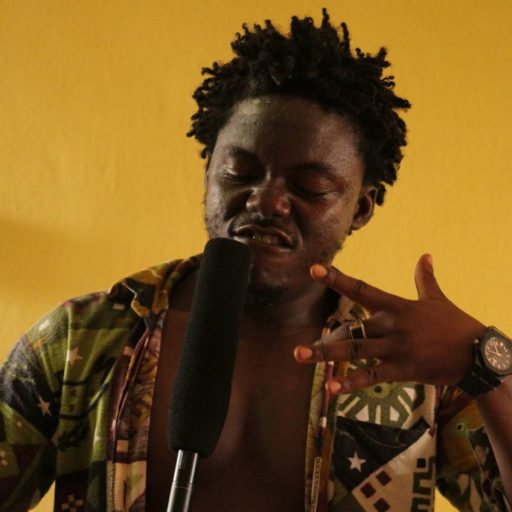Konya Shamsrumi: What is the process of writing a poem like for you? Is it a lot of hard work or easy?
Jeffrey Renard Allen: Overall, I enjoy writing poems because the process is so different from prose, especially fiction. Fiction is torturous, the many hours you have to put in, the days, weeks, months, and years that it takes to finish a novel. A poem might take me a few hours or a few days to write, revise, reconstruct, polish. Perhaps a few weeks with complicated poems. A story will take months, or years. My novels always take a decade, at least four hours of composing each day, then another hour planning the next day’s work, perhaps some revising as well. Four hours a day, five days a week, for ten years. I wish I were exaggerating.
Konya Shamsrumi: Please describe your sense of identity in this or any possible world in imagery or metaphor?
Jeffery Renard Allen: I am a bird. I often fly too high into the sky, get too close to the sun. My wings melt, and I crash into the sea. Perhaps I drown, salty water filling my lungs. But I always rise again. Eternal.
Konya Shamsrumi: If any of your poems could literarily save a person’s life, which poem would it be and can you describe the person whose life you think it would have saved?
Jeffery Renard Allen: I have yet to write a poem that will save a life, but all of my poems are once poem, a scroll, writing to save a life. All my poems are calls of remembrance, especially to those in exile, the descendants of slaves, and those still in search of home or trying to return home, those seeking a promised land. I am writing a “Memory of Forgetfulness,” as Mahmoud Darweesh called it. I am asking the question that Robert Hayden asks in his poem “O Daedalus Fly Away Home,” asking, “Do you remember Africa?” No, I don’t. I’ve been robbed of this past. (DNA tests are only a blood solution, a genealogical first step, and largely irrelevant since we have no firsthand knowledge of the cultures that we descend from.) Can it ever be retrieved? No. Speculation is necessary. Imagining. Mythic invention is one way of returning, one way of seeking a return. “Do you remember Africa?” Yes, in my cultural idioms—song, music, speech, cuisine, dress, athletics—modes that are always in becoming, a yet-to-be and always yet. And our spirit and psyche, the ability to make a way out of no way. And in making art, what I as an individual can bring to these modalities when I write a poem, story, essay, or novel, that is, my individual style, what novelist and critic Albert Murray called the “dancing of an attitude.”

Konya Shamsrumi: What does Africa mean to you, as potential or reality?
Jeffery Renard Allen: Africa is the Promised land. Potential. Possibility. Power. Youth. Perhaps the only hope for all of humanity. A once was as well as a yet to be.
Konya Shamsrumi: Could you share with us one poem you’ve been most impressed or fascinated by? Tell us why and share favorite lines from it.
Jeffery Renard Allen: I am always moved when I read Keorapetse Kgositsile’s June 16th, Year of the Spear, which projects into a positive future of liberation, a future beyond the tragic riots in Soweto in 1976 where the brutal apartheid regime took the lives of so many young people. The poet sees a “new day” and hears “freedom sounds” played out to the “rhythm of dreams.” Writing is an act of struggle for liberation just as the struggle for liberation requires creativity, a new vision of the world. Is this not still the dream? I believe that we will all get there in the by-and-by.

A Chicago Native, Jeffery Renard Allen is the author of five books, most recently the novel Song of the Shank. Allen has received numerous accolades for his work, including a Whiting Writers’ Award, a Guggenheim fellowship, a residency at the Bellagio Center, and fellowships at The Center for Scholars and Writers, the Johannesburg Institute for Advanced Studies, and the Schomburg Center for Black Research and Culture. His collection of stories Fat Time will be published in 2022. Founder and editor of the online magazine Taint Taint Taint, he is at work on several projects, including the critical study The Rhythm of the Hot Dog: Music as Narrative, the memoir Mother Wit, and the novel Hour of the Seeds. He makes his home in Johannesburg. Find out more about him at www.authorjefferyrenardallen.com
- Poets Talk: 5 Questions with Hauwa Saleh - May 14, 2024
- Poets Talk: 5 Questions with Daisy Odey - September 5, 2023
- Poets Talk: 5 Questions with Dare Tunmise - August 15, 2023

















Leave a Reply